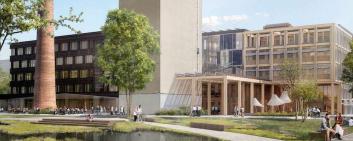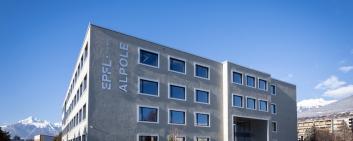Climate change may be one of the greatest threats facing the planet. Yet, the understanding of its impacts on the environment is incomplete, and predictions of climate-induced phenomena are subject to large uncertainties. With the support of the canton of Valais, EPFL has created a new Center for Changing Alpine and Polar Environments (CAPE) to better understand climate-driven changes and their consequences on natural and built environments.
CAPE will be located in a dedicated building on the EPFL Valais Wallis campus in Sion. It will focus on five research areas: Extreme Environments, Computational Environmental Science and Engineering, Catchment Science and Engineering, Environmental Adaption, Stream Biofilms and Ecosystems.
One of the most famous European institutions of science and technology
With its main campus located in Lausanne and its developing antennae in the neighboring cantons of Fribourg, Neuchâtel, Geneva, and Valais, EPFL is one of Europe’s most innovative and productive scientific institutions. It has three core missions: training, research and technology transfer. The EPFL Sion campus, principally dedicated to scientific research in the fields of energy, health and the environment, currently brings together 160 people, with the aim to reach 400 in the coming years.







